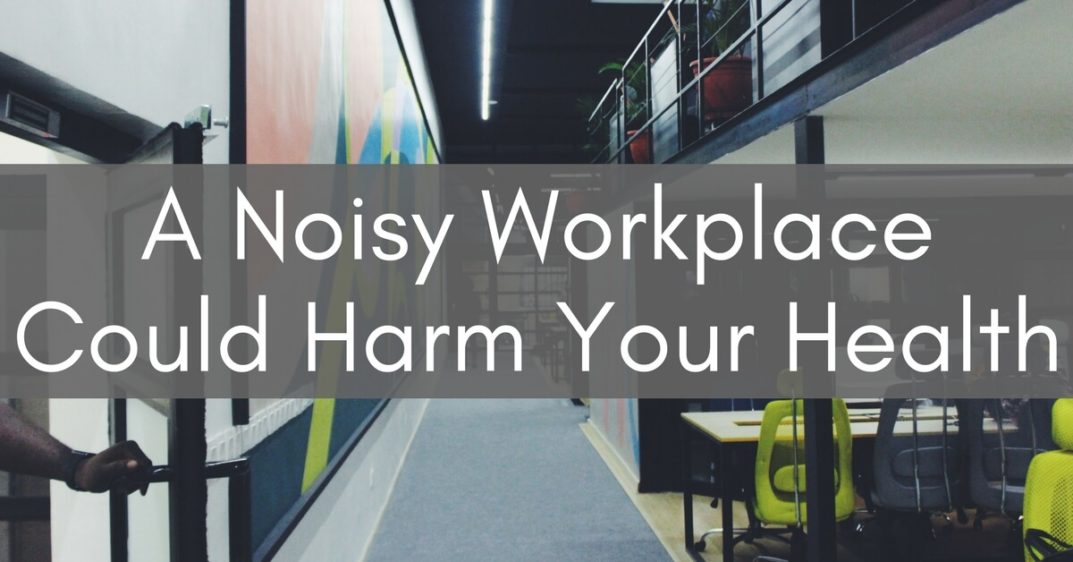Part of living a life includes a little wear and tear on our systems. It’s just a matter of putting miles on this body we’re cruising around the world in. It’s up to us to protect our bodies in order to maintain our healthiest levels of functioning for the longest amount of time possible, while maintaining a balance that allows us to also fully engage in life.
So, what happens when our workplace carries potential risks that can do real long-term damage? We’ve long known that a too noisy work environment can damage your ears. Now, new findings published in the American Journal of Industrial Medicine warn that a noisy workplace environment can wreak havoc on your heart as well as your ears.
Noise in work environments
Dangerous sound environments in the workplace are a real concern. The US Department of Labor accounts for 22 million workers exposed to too loud noise in the workplace every year. What’s more, the cost to employers in the United States to compensate for resulting hearing loss is in the hundreds of millions of dollars.
The Occupational Health and Safety Administration (OSHA) requires that workplaces remain within certain limits in order to protect the rights of workers to a safe environment. The permissible exposure limit is 90 decibels for all workers for an eight- hour day. Some industries function above these levels of noise by necessity, and so OSHA requires other methodologies to be employed in order to protect worker’s hearing health. Despite regulations and precautions, too-loud work environments continue to lead to noise induced hearing loss.
Noise-induced hearing loss
Noise-induced hearing loss is the product of damage done to the ear by dangerously loud sounds. It can occur in an instant, with a single traumatic event, or gradually over time with repeated exposure to dangerous noise. Some industries that have high incidence of noise induced hearing loss include the military, construction work, professional musicians, manufacturing and agriculture.
Remember that our ears evolved for most of human history in non-mechanical environments. Our modern relationship to machinery and the loud sounds that come along with it bring along noise that our ears were not built to withstand.
And our hearts, too
The effect of noisy workplaces on the heart means that the rest of our body can be sensitive to these too loud sounds, as well. The researchers who announced these findings did so after analyzing data from a national health survey. They showed that about a quarter of employees are exposed to harmful noise in the workplace, with 14% reporting exposure to excessive noise. It’s the long-term health effects of this noise and what it does to the body that is alarming.
On a whole, 12% of workers report hearing loss while almost a quarter report high blood pressure and slightly more suffer from high cholesterol. These latter conditions are also reported as developing while working within dangerous noise exposure, potentially linking the sound environment and heart health.
Signs of a too loud workplace
There are a few questions to ask yourself when trying to figure out if your workplace carries health risks because of excessive noise. It may be a problem if you hear ringing or humming in your ears when you leave work. Notice the conversation levels with your coworkers in your work environment. If you have to shout to be heard by someone at an arm’s length away, then your workplace is too loud. Pay attention to the way your hearing feels when you leave work. If you have ever experienced temporary hearing loss at or when leaving work, then you have been exposed to excessive noise.
Be aware and protect yourself
Certainly, we cannot eliminate noisy work environments. These industries play an integral role in our society. However, we can take care to protect employees and prioritize their health and well-being. If you work in an industry that you would evaluate as being dangerously loud, there are some precautions you can take. Wear noise canceling headphones or other forms of ear protection. That is the first step in placing a barrier between your ears and the loud sounds. You might also give your ears a rest at regular intervals. Find a quiet place to retreat to when you take a break instead of remaining in the noisy environment.
Stay on top of your health with Comprehensive Ear and Hearing
Make regular appointments with us at Comprehensive Ear and Hearing to monitor your hearing health. Don’t forget to check in with your physician on your blood pressure and cholesterol levels. This way, you’ll be aware of the first signs warranting intervention.


